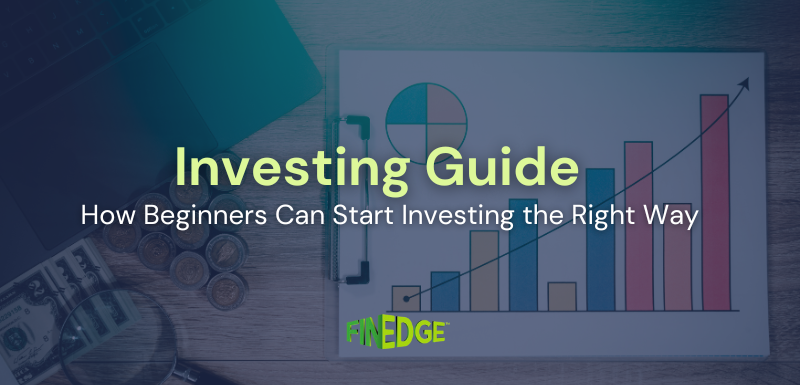Direct vs Regular Mutual Funds: What Investors Often Get Wrong
- Understand the core differences between direct and regular mutual funds
- Discover the misconceptions investors commonly hold
- Learn why expert guidance can impact long-term outcomes
- Get a clearer picture of which option aligns with your investing needs
Are regular mutual funds really more expensive? Or is there more to the story?
The debate around direct or regular mutual funds has intensified over the years, especially as digital platforms promote "zero commission" investing. Many investors are drawn to direct plans purely based on cost. But is cost the only factor that matters when it comes to mutual fund investment? Let’s break it down with clarity and nuance.
What are Direct Mutual Funds?
A direct mutual fund is a version of a mutual fund scheme where you invest directly with the fund house, bypassing any distributor or intermediary. As a result, the fund doesn’t incur commission-related costs, which leads to a lower expense ratio and theoretically higher NAV over time.
In concept, it sounds like a win. Lower costs, higher returns, right?
Yes, if you have the time, knowledge, and emotional discipline to research and manage your own investments consistently. Choosing the right fund, reviewing it periodically, avoiding unnecessary portfolio churn, and sticking to long-term goals requires effort, clarity, and conviction.
This is where the gap emerges.
What are Regular Mutual Funds?
Regular plans are simply the same mutual fund schemes, but distributed through intermediaries. These distributors or advisors get compensated by the fund house, which is reflected in a slightly higher expense ratio (around 0.5% more).
But what do you get in return for this added cost?
-
Personalized guidance based on your financial goals
-
Behavioural coaching during volatile markets
-
Goal based investing strategies aligned with your life milestones
-
Portfolio monitoring and rebalancing when required
More importantly, you get help in avoiding the most dangerous investment behaviour: emotional decision-making.
Direct vs Regular Mutual Funds: Key Differences
|
Factor |
Direct Plan |
Regular Plan |
|
Expense Ratio |
Lower |
Slightly Higher |
|
Fund Choice |
Self-researched |
Advisor-guided |
|
Guidance |
None or Robo |
Human + Tech |
|
Risk of Missteps |
High (DIY) |
Lower with expert help |
|
Suitability |
Experienced investors |
Most investors |
While the underlying fund remains the same, the investing experience is vastly different.
How Each Model Works: The Industry Paradox
The tech-driven, zero-cost investing model often attracts investors by offering free direct plans. But the real business model typically kicks in later, when investors are nudged toward premium offerings like PMS, AIFs, F&O strategies, or bundled insurance. What starts as a low-cost entry can result in high-cost outcomes.
On the other end of the spectrum, high-touch advisory models often rely on a smaller base of clients and build deep trust. But because they don’t scale easily, they may lean on pushing high-margin products to sustain profitability.
In both models, the conflict of interest can surface, either subtly or structurally. That’s why it’s important not just to look at costs or touchpoints, but to ask a more fundamental question: Whose interest comes first in this relationship?
Misconceptions About Direct and Regular Mutual Funds
1. "Direct plans always outperform." While mathematically they have a cost advantage, performance also depends on fund selection, review discipline, and behaviour. DIY errors often outweigh the 0.5% cost advantage.
2. "Regular plans are only for beginners." Not true. Many seasoned investors prefer regular plans because they value expert input, especially during market corrections.
3. "Advisors just push products for commissions." Some do. But client-first firms operate on a non-target, non-product-pushing model. The focus is on long-term outcomes, not transactions.
4. "I can switch to direct later." Yes, but what happens in the interim? Behavioural mistakes, missed reviews, or unsuitable fund choices can cause long-term damage.
Direct or Regular Plans: Which Should You Choose?
It boils down to capability and context.
-
Choose direct plans if you are confident in your research skills, have the time and willingness to manage your portfolio, and are emotionally detached from market movements.
-
Choose regular plans if you value handholding, want help with setting and tracking financial goals, and prefer a guided approach.
In most cases, regular plans with expert guidance lead to better outcomes because they prevent mistakes, not because they chase returns.
As one investing insight reminds us: "If everything is free, then you are the product."
Final Thoughts
When evaluating direct vs regular mutual funds, cost should not be your only lens. Advice is not a cost; it’s a safeguard. Especially in a world where investing decisions are deeply linked to behaviour, having someone in your corner often outweighs the 0.5% difference.
Whether you choose direct or regular, align your decision with your investment behaviour, not just the expense ratio.
FAQs
Your Investing Experts
Continue Reading
Beginner Investing Guide: How to Start Investing the Right Way
Investing for beginners can feel both exciting and overwhelming. With constant news about markets, social media opinions, and stories of quick gains, first-time investors often struggle to separate what truly matters from what is simply noise.
How to Save More From Everyday Expenses and Invest More Consistently
Spending smarter, timing purchases better, and being intentional with recurring expenses can create a steady surplus that can be channelled into long-term investments.
Rupee Falling? How to Protect and Grow Your Investments
When the rupee weakens, it often creates anxiety for investors. But currency depreciation is not an anomaly; it is a recurring phase in every long-term economic cycle. The real question is not whether the rupee will fall, but how investors should respond to it without derailing their long-term financial goals.
_(44).jpg)



